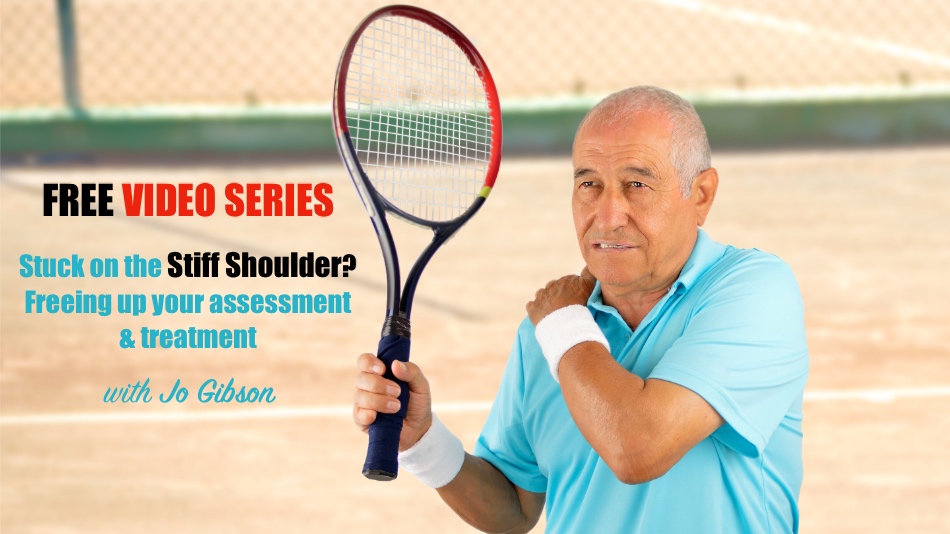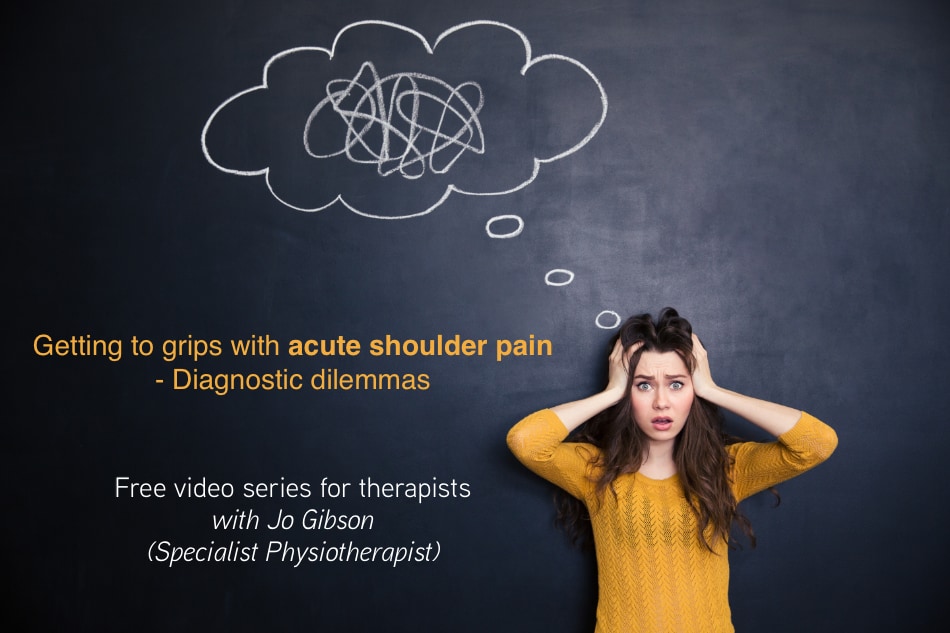Fri, 12 March 2021
When paediatric or skeletally immature patients have shoulder pain, what diagnoses should be kept in mind? What are the potential diagnoses following trauma, in overuse injuries or “little leaguers shoulder”? What assessment and imaging is required in these patients? Find out in this podcast with Jo Gibson (Clinical Physiotherapy Specialist), and explore:
Accurately assess, diagnose & treat stiff shoulders, including frozen shoulder, with this free videos series from Jo Gibson (Clinical Physiotherapy Specialist) at clinicaledge.co/shoulder The handout for this podcast consists of articles referenced in the podcast. There is no additional transcript or handout available. Links associated with this episode:
Articles associated with this episode:
Direct download: 114._Paediatric_shoulder_injuries._Physio_Edge_Shoulder_success_podcast_with_Jo_Gibson.mp3
Category:general -- posted at: 10:24pm AEST |
Fri, 12 March 2021
What are the best rehab options for patients with an irreparable rotator cuff tear? Can we predict which patients will do well and how long rehab will take? Find out in this podcast with Jo Gibson (Clinical Physiotherapy Specialist), discussing rehab options, a patient case study and the latest evidence for massive rotator cuff tear (MRCT) rehab. Discover:
Get free access to video series on assessment & diagnosis of acute shoulder pain and stiff shoulders at clinicaledge.co/shoulder For improved clinical skills, knowledge and treatment results with all other areas of the body, get a free trial Clinical Edge membership at clinicaledge.co/freetrial The handout for this podcast consists of articles referenced in the podcast. There is no additional transcript or handout available. Links associated with this episode:
Articles associated with this episode:
Direct download: 113._Massive_rotator_cuff_tear_rehab._Physio_Edge_Shoulder_success_podcast_with_Jo_Gibson.mp3
Category:general -- posted at: 2:33pm AEST |
Physio Edge podcast

Categories
generalArchives
AprilMarch
February
August
June
May
April
March
February
November
October
July
April
March
February
December
August
July
April
March
February
December
October
September
June
May
April
March
February
January
December
October
August
June
May
April
March
January
December
October
September
August
July
June
May
February
January
December
November
October
August
June
May
April
March
February
November
October
September
August
June
May
April
March
February
November
September
August
July
June
April
March
February
January
December
October
July
June
May
March
December
September
August
June
April
December
September
August
June
April
February
January
December
November
October
September
August
| S | M | T | W | T | F | S |
|---|---|---|---|---|---|---|
| 1 | 2 | 3 | 4 | 5 | 6 | |
| 7 | 8 | 9 | 10 | 11 | 12 | 13 |
| 14 | 15 | 16 | 17 | 18 | 19 | 20 |
| 21 | 22 | 23 | 24 | 25 | 26 | 27 |
| 28 | 29 | 30 | 31 | |||
Syndication







